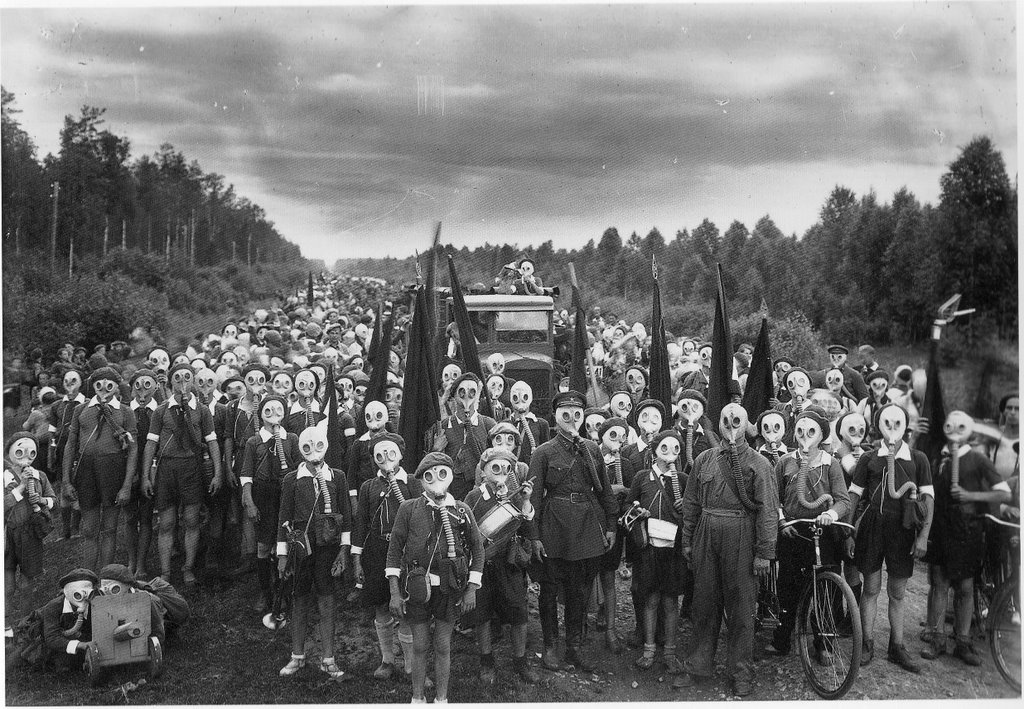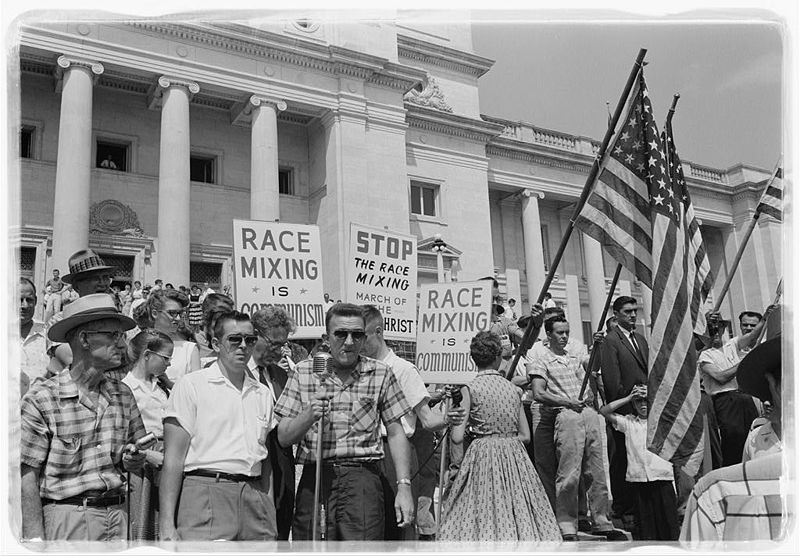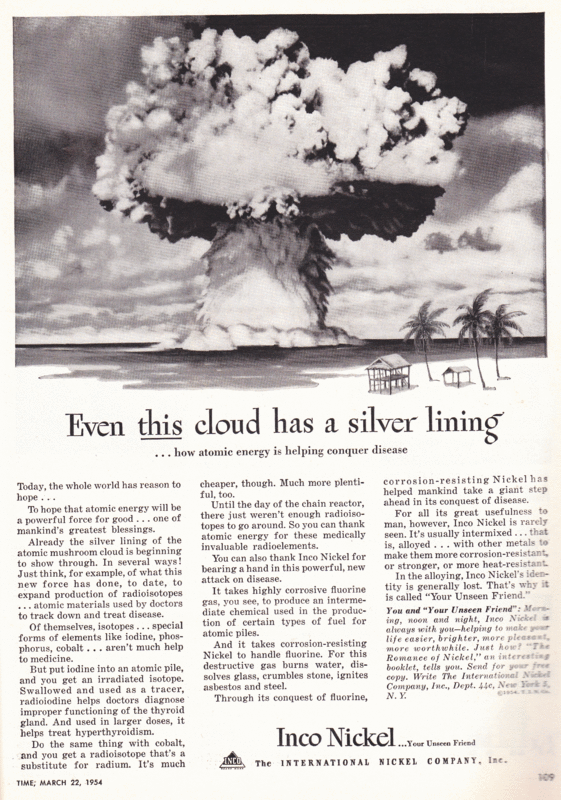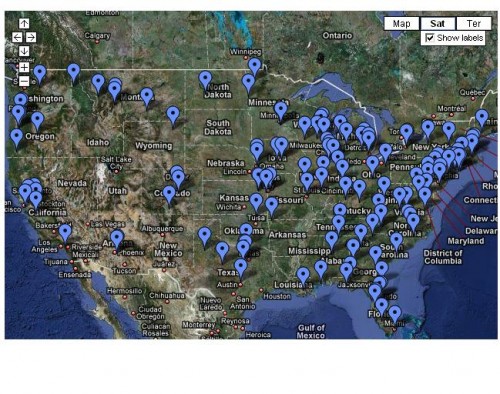U.S. civilians, by virtue of geography and geopolitics, have rarely experienced war firsthand. The possibility of the destruction of our infrastructure or civilian casualties on our land has remained remote. Today, for example, though we are waging war in Iraq and Afghanistan, non-military Americans do not expect to personally suffer (with the significant exception of harm to and the loss of loved ones).
That civilian populations can experience war in vastly different ways is illustrated by this photograph:

It is the early 1920s and the Soviet Union has been at war with much of Europe for several years. In the photograph, children practice their response to being gassed in an attack.
The Vietnam War was the first televised war and some sociologists credit the visual images returning from the war for increasing opposition. But the idea that an understanding of the horrible, destructive, and deadly effects of war would require the mass media is predicated on U.S. geographical detachment. That is, the mass media would be less necessary if the war was happening on our soil.
Earlier this month, the U.S. military hardened its rule against publishing photographs of dead or dying U.S. soldiers. The rule for embedded journalists states that:
Media will not be allowed to photograph or record video of U.S. personnel killed in action.
This separates U.S. civilians from war in a second way, by politics. So a civilian population can be isolated from its own wars by geography or by politics and, largely, the U.S. is separated by both.
Thanks to Dmitriy T.M. for this great photograph.
For more posts discussing the impact of war on civilians, see license plate patriotism, sex protest, war is boring, WWII civilian sacrifices (carpooling and staying off the phone), war and euphemism, framing “their” deaths, the silent ranks, U.S. non-news about war, and reframing the “atomic bomb” (the evolution of the term and mushroom clouds have a silver lining).
—————————
Lisa Wade is a professor of sociology at Occidental College. You can follow her on Twitter and Facebook.



